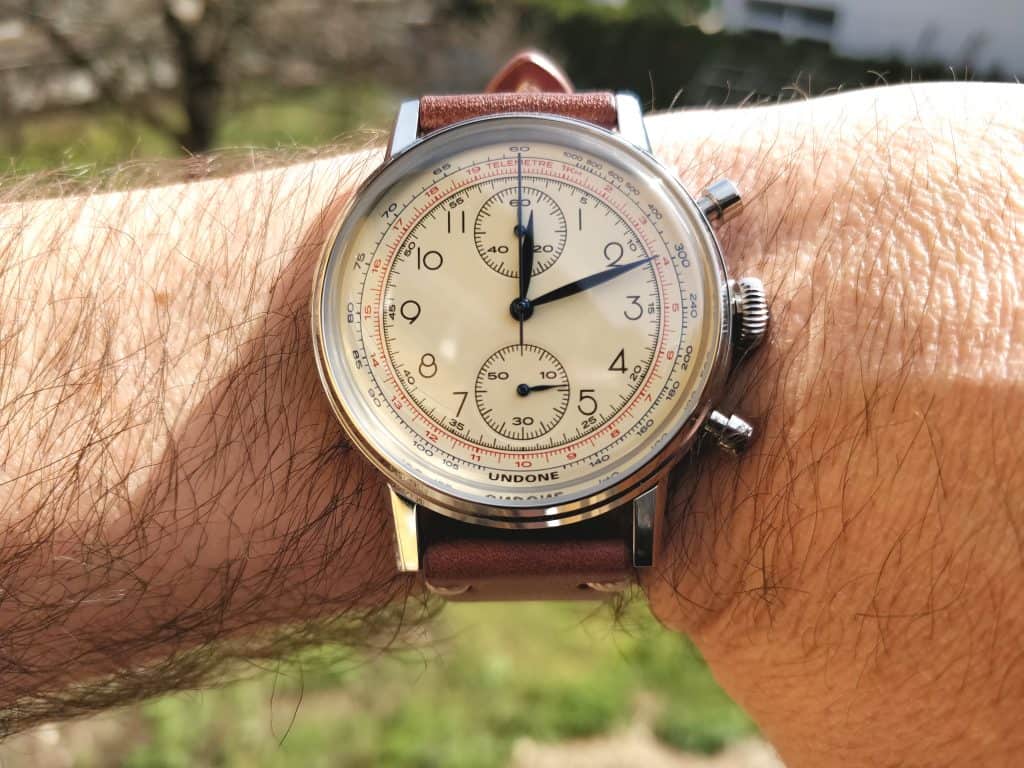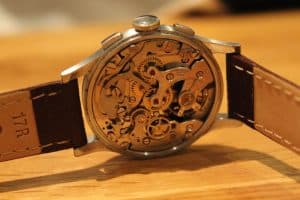Does it mean that a watch is expensive if they tick, then this 2024 guide, this article will remove all the rumours you may have heard up and till now.
Did you recently purchase an expensive wristwatch and wonder if it is genuine or not?
Well, an excellent way to know whether your timepiece is authentic or not is through the sound it makes.
Not just that, you can know an authentic watch from an affordable one by closely looking at features like the type of movements, appearance, weight, functionality, and more.
That said, the big question is, do expensive watches tick?
Read all about it and more in today’s post.
Types of watch movements
There are two main movements in the watch industry today, and they include Quartz and mechanical.
For starters, all automatic timepieces are categorized under the mechanical type.
If you’re new to the watch space, it will interest you to know that mechanical watches go way back.
Before Quartz became a household name in the watch industry, mechanical watches were the most dominant movement back in the day.
The only reason quartz movements grew in popularity was that they were a lot cheaper to make.
And considering that watchmakers were looking to cut down their cost of production drastically, it was no surprise to see many watchmakers opt for the quartz movement in the latter part of the 20th century.

Unlike mechanical movements, Quartz powered watches feature unique electronic oscillators that help move the seconds’ hand.
And because this movement only relies on the oscillator, it is a lot cheaper to produce.
More so, it is more accurate than other movements, and that’s because it has fewer parts.
On the flip side, pricey watches are more likely to be mechanical.
With mechanical watches, you have to wind their crowns to power the gears.
More importantly, most of their parts have been carefully fine-tuned in such a way that their hands sweep when they move.
This is why you won’t notice any ticking sound with high-end watches.
Out of all the watch brands out there, the Rolex watch brand is known for building quiet watches.
Features you should look out for when shopping for expensive timepieces
Before you spend your money on that costly timepiece, there are some features you must pay close attention to.
While the absence of ticking is a feature you should look out for in a quality timepiece, you want to consider these other features:
Appearance
When you’re presented with a supposedly expensive watch and a more affordable one, you will be able to tell which is more costly by simply looking at their appearance.
From the appearance of an expensive watch, you should be able to see the quality of materials used to build it.
For instance, Swiss and French watch builders use real jewels in their dials.
Sometimes, they also use emeralds.
Weight
Luxury watches feature a lot of intricate parts, so they tend to be heavier.
More so, because they are built from high-quality materials, they also tend to pack some weight.
A luxury timepiece with genuine sapphire on its display tends to be heftier than an ordinary watch that features the synthetic variant.
Movement
Many factors influence how a mechanical movement tells time.
Factors like how many jewels a watch has can significantly impact its quality and performance.
The most luxurious timepieces out there usually come with genuine jewels, possibly rubies.
And for the most part, these jewels are colored.
Jewels are a lot different from the gems you’ll typically see on watch faces.
Jewels are nicely fitted between bearings to forestall friction.
And just so you know, the more jewels a watch has, the more accurate and better it performs.
To this end, you can expect pricey watches to have over 35 jewels.

To further buttress this point, there is a need to tie it to appearance, and here is why.
Most mechanical and automatic timepieces feature cut-outs carefully designed to allow you to glance at the gears.
More so, expensive timepieces look classy and don’t have large openings.
Similarly, most expensive units boast extensive power reserves of up to 50+ hours.
And once they run out of power, you only have to wind the crown to get them working again.
Functionality
Each watch you see on the market, regardless of its quality, has its unique features.
For instance, a dive watch would typically boast resistant ratings up to 200M.
Pilot watches, on the other hand, come with detailed chronographs and slide rules.
And like other factors, the pricing for a watch is usually influenced by these features.
Let’s quickly compare expensive dive watches to affordable options out there.
To start with, pricey dive watches boast resistance ratings up to 300M.
Also, these watches have high-grade luminous pigments.
Additionally, you’ll notice that they have surgical-grade stainless steel along with hydrogen valves that prevent gas from collecting.
They may also come with hard sapphires carefully put in place to take the beating produces by pressure when diving.
Do Quartz-powered watches tick?
Like we mentioned earlier, most expensive watches don’t tick, and that’s because they come with fine-tuned gears that are always in motion.
Also, keep in mind that all mechanical-powered watches sweep and not tick like their quartz counterpart.
As a matter of fact, the more expensive ones like the Rolex make no sound at all.
On the flip side, all Quartz watches tick, and that’s because of the oscillators in them.
Their loudness usually depends on the number of oscillations per second.
Pricier quartz watches are designed to vibrate 16 times in a second.
This reduces the loudness of their ticks significantly.
Frequently asked questions
Why does my timepiece make a ticking sound?
The ticking sound of your watch usually emanates from the pallet preventing the escape wheel, the mechanism that makes your watch tick and moves.
Watch ticking is a common feature you’ll see with quartz watches.
Is it bad for my watch to tick?
If you have a quartz-powered watch, then it is absolutely normal for your watch to tick.
On the other hand, if this happens to your mechanical watch, it is a tell-tale sign that your timepiece needs to be adjusted or wound.
Do genuine watches tick?
In the real sense, all watches are designed to produce a tick-tock sound.
That said, in an original timepiece, the internal mechanisms are so nicely constructed and fine-tuned that the ticks only happen about nine times, resulting in a flawless sweeping movement.
Conclusion
To wrap up, more expensive watches feature premium mechanical mechanisms.
Compared to cheaper units out there, costly watches don’t tick; rather, they produce a flawless sweeping movement.
Of course, you may hear a sound, only that it won’t be a tick-tock sound.
Brands like Rolex have nicely fine-tuned their gears so that they virtually produce no sound.
On the other hand, Quartz watches tick, regardless of their pricing.
And that’s because of the oscillators that come with them.
- Why are Swiss Watches So Expensive
- Top Reasons Why Watches Have Jewels – Updated Guide 2024
- How to Store Watches – Updated Guide 2024
- Which Wrist to Wear a Watch – Updated Guide 2024
- How Does a Smartwatch Work – Updated Guide 2024
- How Loose Should a Watch Be – Updated Guide 2024
- How to Measure Your Wrist for a Watch – The Updated Guide


